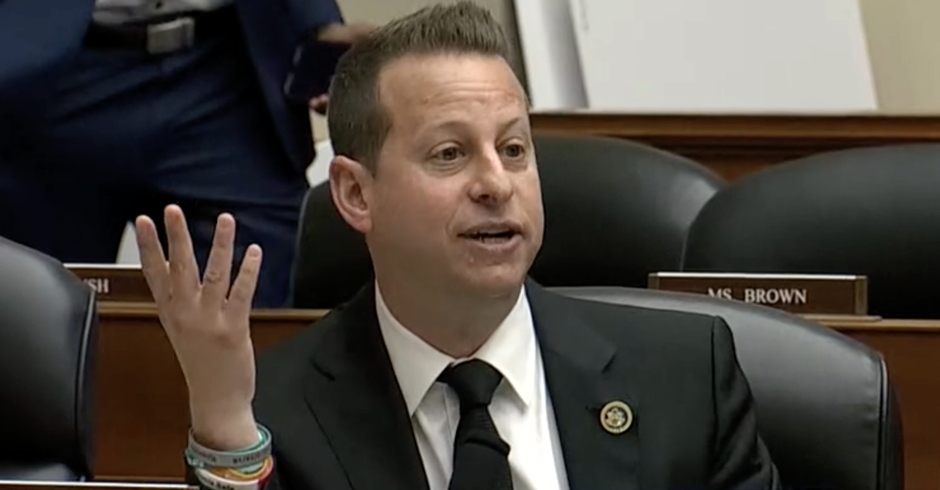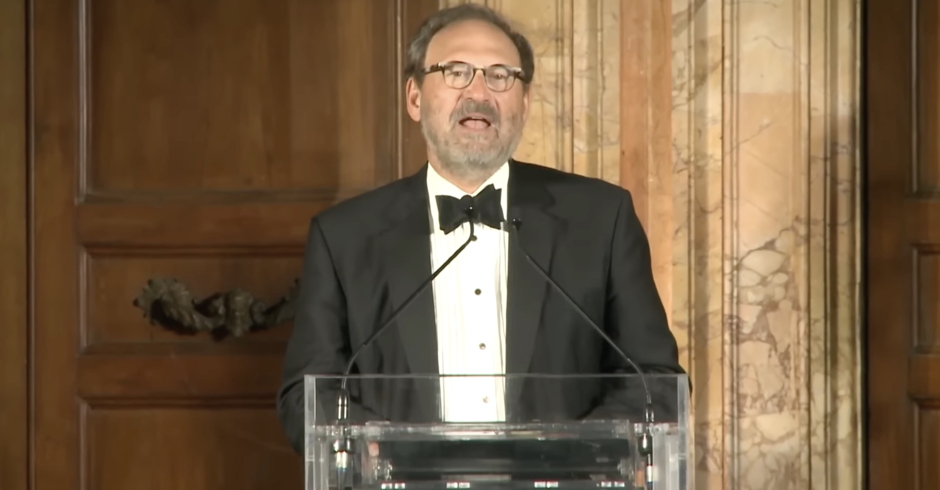WARNING: US LGBT Organizations Falling Into Uganda’s Anti-Homosexuality Trap
var addthis_config = {“data_track_addressbar”:true};
Like so many of us, I was dismayed last week after Uganda president Yoweri Museveni announced that despite international pressures and the risk of economic sanctions, he has decided to go ahead and sign the infamous Anti-Homosexuality Bill (formerly known as the “Kill the Gays Bill”). So naturally, I was pleased as I watched the announcement receive swift condemnation from President Barack Obama and U.N. Ambassador Susan Rice. “As we have conveyed to President Museveni, enacting this legislation will complicate our valued relationship with Uganda,†said Obama. “It will be a step backward for all Ugandans and reflect poorly on Uganda’s commitment to protecting the human rights of its people.”
National LGBTQ organizations took it a step further over the last few days, and demanded the U.S. government recall our ambassadors from both Uganda and Nigeria. That gave me pause. Why would we want to withdraw our diplomatic connections to countries where human rights are being abused? Doesn’t that leave us without the on-the-ground ability to work on turning these laws back?
As it turns out, both our national LGBTQ rights organizations and President Obama are falling right into the trap set by anti-gay leaders in Africa.
Rev. Dr. Kapya Kaoma, Senior Religion and Sexuality Researcher at the social justice think tank Political Research Associates (where I also work), was the first U.S. researcher to reveal the links between U.S. conservatives and Uganda back in 2008. He’s written an excellent article explaining what is happening:
Last weekend, Uganda President Yoweri Museveni gave a speech “declar[ing] war on the ‘homosexual lobby,’†and called on all Ugandans to stand with him—he was expecting the Western world to react to his declaration. To Museveni and most Ugandans, the ‘homosexual lobby’ includes not only major LGBTQ rights organizations, but the United States and the European Union, which have for many years fought for the rights and dignity of LGBTQ persons on African soil. Western nations and organizations have not fought in the way social justice-minded people have hoped—they have not stopped the arrests, or the beatings—but there is no doubt that their presence and back-room meetings with African politicians has saved LGBTQ lives from systematic persecution, and in some cases, genocides.
It is these nations and organizations that have provided safe spaces for African LGBTQ persons—even in extraordinarily homophobic countries like Nigeria, Uganda, Zambia, Zimbabwe, and The Gambia—to share their plight and reorganize after their governments disband them. In Zambia and Uganda, these nations have gone beyond simple meetings with local LGBTQ activists, but are also monitoring and documenting human rights abuses, flooding court rooms when LGBTQ persons appear in court, and have provided safety when African nations declare war on gays. When LGBTQ Africans lives’ are in immediate danger, it is to the U.S. and European embassies they run for safety. These nations’ open protection of sexual minorities in Africa has resulted in charges of “promoting homosexuality in Africa†by both religious and political leaders.
Honestly, had it not been for the presence of the U.S. and European embassies, African gays would have been massacred years ago, without any fear of consequences. For LGBTQ organizations to now demand they pull out of Uganda perilously compromises the lives of LGBTQ persons—who will not have anyone to turn to for safety, and strip our ability to monitor persecution.
I understand that we are all desperate to stop the progression of the Ugandan Anti-Homosexuality Bill. But threatening to leave the country will only boost the political power and credibility of leaders like Museveni, David Bahati, and Martin Ssempa—opening the door for African nations to expand further anti-LGBTQ laws, possibly even including executions and mass slaughter.
In other words, if we were to withdraw our ambassadors and shutter our embassies in these homophobic countries, we’d be shutting off some of the only safe havens available to African LGBTQ people. And even worse, we lose the ability to see what’s happening and destroy our ability to intercede.
Look, no offense to our national LGBTQ organizations, they do some awesome work. But this can only be categorized as stupidity. U.S. and European diplomatic relationships in Uganda and Nigeria are one of the few reasons these Anti-Homosexuality bills no longer call for the slaughter of our brothers and sisters. If we turn our backs on them, what do we think is going to happen?
If we’re looking for real action to take, let’s follow Kaoma’s advice:
African homophobia is promoted and propelled by religion. In Uganda, Christian leaders (paid for and encouraged by American evangelicals) have been demanding the bill for years, and pushing their followers to vote for the lawmakers who support it. Politicians will always be politicians—they are always looking for votes. In his attempt to win the Evangelical votes in 2008, then-presidential candidate Barack Obama disagreed with same-sex marriage in a debate moderated by Pastor Rick Warren—one of very same U.S. evangelicals who worked with anti-gay pastors in Uganda. But to think that such dynamics only work in American politics is naïve at best, and dangerous, careless, and deadly at worst. Museveni needs votes to remain in power. So the answer to Uganda’s anti-gay bill lies in the primarily Christian electorate of Uganda. We should be demanding that Pope Francis speak directly to President Museveni and Speaker Rebecca Kadaga, and urge Ugandan Roman Catholics to proclaim his already-stated opposition to any law criminalizing LGBTQ persons. U.S. Anglican, and Evangelical/Pentecostal leaders should equally speak to their friends in Uganda about the dignity and fundamental human rights of sexual minorities. And the American people must demand an end to the constant flow of exportation of homophobia from U.S. evangelicals like Scott Lively, Lou Engle, and Rick Warren to Ugandan pastors and politicians.
Open letters, petitions, and press releases will only give Museveni and Uganda lawmakers another reason to sign and enforce the bill.
Image, top, by Chatham House via Flickr
Follow Eric Ethington on Twitter @EricEthington
 Eric Ethington has been specializing in political messaging, communications strategy, and public relations for more than a decade. Originally hailing from Salt Lake City, he now works in Boston for a social justice think tank. Eric’s writing, advocacy work, and research have been featured on MSNBC, CNN, Fox News, CNBC, the New York Times, The Telegraph, and The Public Eye magazine. He’s worked as a radio host, pundit, blogger, activist and electoral campaign strategist. He also writes at NuanceStillMatters.com
Eric Ethington has been specializing in political messaging, communications strategy, and public relations for more than a decade. Originally hailing from Salt Lake City, he now works in Boston for a social justice think tank. Eric’s writing, advocacy work, and research have been featured on MSNBC, CNN, Fox News, CNBC, the New York Times, The Telegraph, and The Public Eye magazine. He’s worked as a radio host, pundit, blogger, activist and electoral campaign strategist. He also writes at NuanceStillMatters.com

Enjoy this piece?
… then let us make a small request. The New Civil Rights Movement depends on readers like you to meet our ongoing expenses and continue producing quality progressive journalism. Three Silicon Valley giants consume 70 percent of all online advertising dollars, so we need your help to continue doing what we do.
NCRM is independent. You won’t find mainstream media bias here. From unflinching coverage of religious extremism, to spotlighting efforts to roll back our rights, NCRM continues to speak truth to power. America needs independent voices like NCRM to be sure no one is forgotten.
Every reader contribution, whatever the amount, makes a tremendous difference. Help ensure NCRM remains independent long into the future. Support progressive journalism with a one-time contribution to NCRM, or click here to become a subscriber. Thank you. Click here to donate by check.
 |






















